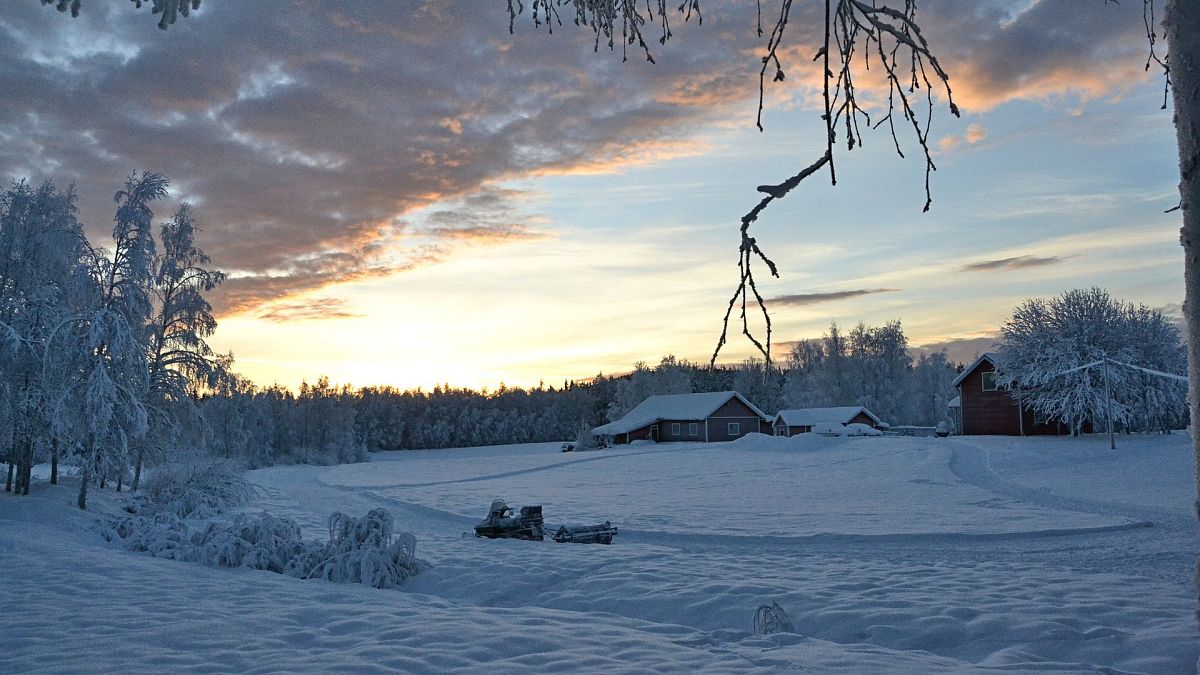A small town in northern Sweden is offering financial incentives for families who decide to move there.
Glommersträsk in Lapland is a haven for nature lovers and outdoor sports enthusiasts.
But its population has been in sharp decline in recent decades with particularly low numbers of school-age children.
The local primary is in danger of closing if numbers continue to drop.
So authorities are trialling a repopulation scheme that has been widely used in other European countries like Italy and Spain.
This village in Lapland will pay families nearly €900 to move there
In 1950, Glommersträsk had a population of around 1,000. Now, just 200 people live in the village.
Only 23 of those are of the age to attend primary school.
The local council stipulates that if the institution’s student body drops to below 25, it may be forced to close. Students would be moved to the nearest school in Arvidsjaur, around 40 kilometres away.
Glommersträsk’s high school shut its doors in 2009 after student numbers fell to just 18 in 2007.
How can you get paid to move to Lapland?
Now, a local organisation is vying to save the primary school and repopulate the town with financial incentives.
Glommersbygdens Framtid, which translates as The future of Glommersbygden and refers to the local area, is offering a cash handout of 10,000 kronor (around €875 euros) to the first five families who relocate there.
To be eligible, families need to have children who are of primary school age - 6 to 15 years old - and will attend the local Parkskolan for a minimum of one academic year.
The Glommersbygdens Framtid group says it will assist families in finding housing and make a list of employment opportunities in the area.
Non-EU citizens can apply, but must obtain a Swedish residence permit first.
Why should you move to Glommersträsk?
Glommersträsk is surrounded by untainted nature, but still has some useful services within easy reach.
Skellefteå tech hub is around an hour’s drive away. The high school in Arvidsjaur is half an hour away while Luleå, a coastal city with a museum and beaches, can be reached in two hours.
All three have small airports with connections to other European countries including Germany and France.
Talking to Swedish newspaper Dagens Nyheter (DN), a spokesperson for Glommersbygdens Framtid described Glommersträsk as “a safe space where your children can grow up in a nice community”, adding that the cash scheme is “the chance of a lifetime”.
The group says that one family has already applied to the scheme and another has just relocated to the town with children who will attend the primary school. “We’re crossing our fingers that there will be more,” they told DN.


